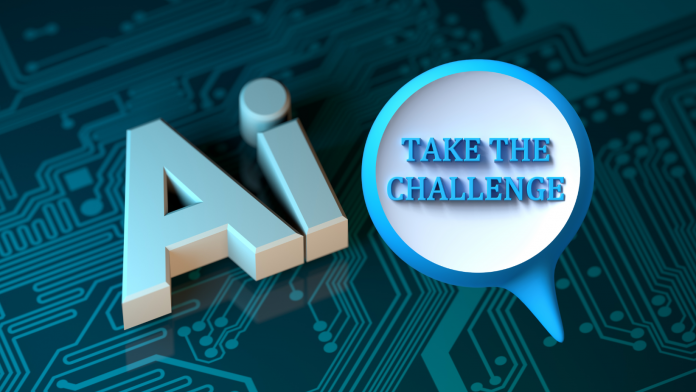The impact of artificial intelligence on employment is a complex issue that has been widely discussed in recent years. Many people are concerned that AI will lead to mass job loss, while others believe that it will create new job opportunities. Some studies predict that AI could eventually replace 300 million full-time jobs globally and affect nearly one-fifth of employment. However, others argue that AI can enhance the productivity of workers and create new products and markets. It is important to recognize the opportunities that Artificial Intelligence brings for job creation, economic growth, and increased productivity. At the same time, it is essential to mitigate the potential negative consequences of AI on unemployment. Policymakers should prioritize investment in reskilling and upskilling initiatives to equip workers with the necessary skills to adapt to emerging job requirements.
Understanding AI & Automation
Artificial Intelligence refers to computer systems designed to mimic human cognitive abilities like learning, problem-solving, and decision-making. On the other hand, automation involves using machines or software to perform tasks previously done by humans. From manufacturing plants to customer service centers, many sectors have already experienced significant changes due to these technologies. Self-driving cars, chatbots, and robotic assembly lines are just a few examples of how Artificial Intelligence and automation are transforming our daily lives. Contrary to popular belief, AI cannot think independently or make decisions without being programmed. Instead, AI learns from data and improves over time through machine learning techniques. Also, remember that AI does not always replace human jobs; instead, it enhances efficiency and creates new opportunities.
The Potential for Job Displacement
Many tasks that are repetitive or rule-based can be automated, which may result in some jobs being replaced by machines. It’s important to be aware of this potential impact. Statistics and estimates regarding the potential extent of job loss are worth considering. Some studies suggest that AI could eventually replace millions of jobs globally and affect a significant portion of employment. Understanding these estimates can help you grasp the scale of the potential impact.
Examples of industries and occupations most at risk of automation include roles in manufacturing, transportation, and customer service. Jobs that involve routine, predictable tasks are more susceptible to automation. Being aware of which industries and occupations are most at risk can help individuals and policymakers prepare for potential changes.
Job Creation and Skill Shift
While discussing the potential for job displacement, it’s equally important to highlight the positive aspects of AI’s influence on employment. Let’s take a look at how Artificial Intelligence can create new job opportunities and shift skill demands. As AI takes over routine, mundane tasks, it frees up employees to tackle higher-level responsibilities, leading to an expansion of job roles. These new positions require specialized knowledge and expertise in areas such as AI development, implementation, and management.
Read Also: 8 Ways to Generate Stunning Videos Using Sora Open AI Without Compromising Originality
Soft skills like creativity, critical thinking, emotional intelligence, and communication remain vital. Technical skills related to programming languages, data analysis, and machine learning are increasingly sought after. Data science and engineering, cybersecurity, and AI product design are among the fastest-growing fields. Industries such as healthcare, finance, and logistics are leveraging AI to drive innovation and improve operational efficiencies.
Addressing Income Inequality
While Artificial Intelligence can create new opportunities, there’s a risk that the benefits may not be equally distributed. Certain groups or individuals with access to AI-related skills and resources may experience greater economic gains, widening the income gap. It’s essential to ensure that the advantages of AI are accessible to all, regardless of background or circumstance. This approach can help mitigate the potential exacerbation of income inequality. Policy considerations and interventions to mitigate income inequality are worth exploring.
Policymakers can implement measures such as investing in education and training programs to equip individuals with AI-relevant skills, promoting fair labor practices in AI-impacted industries, and creating policies that support inclusive economic growth.
Read Also: Understanding the Social Implications of Artificial Intelligence (AI)
Policy Responses and Solutions
Policymakers can consider measures such as investing in education and training programs, creating reemployment services, and establishing policies that support job transitions and skill development. Examples of initiatives aimed at supporting workers and promoting skill development include government-funded training programs, partnerships between educational institutions and industry stakeholders, and initiatives to reskill workers in industries affected by automation.
The importance of proactive measures to ensure a smooth transition to the AI-driven future cannot be overstated. By taking proactive steps, such as investing in reskilling and upskilling initiatives, policymakers can help individuals adapt to changing job requirements and mitigate potential negative impacts on employment.
Ethical Considerations
Issues such as algorithmic biases, data privacy concerns, and the potential for unfair competition must be addressed to maintain trust and confidence in AI-driven solutions. Companies should strive to minimize unintended consequences of AI adoption, while governments should establish frameworks and guidelines to promote fairness, equity, and inclusivity in the AI-driven economy.
Ensuring fairness, equity, and inclusivity in the AI-driven economy is paramount. By fostering an environment where everyone has equal access to AI-related opportunities, we can build a stronger, more resilient workforce.
